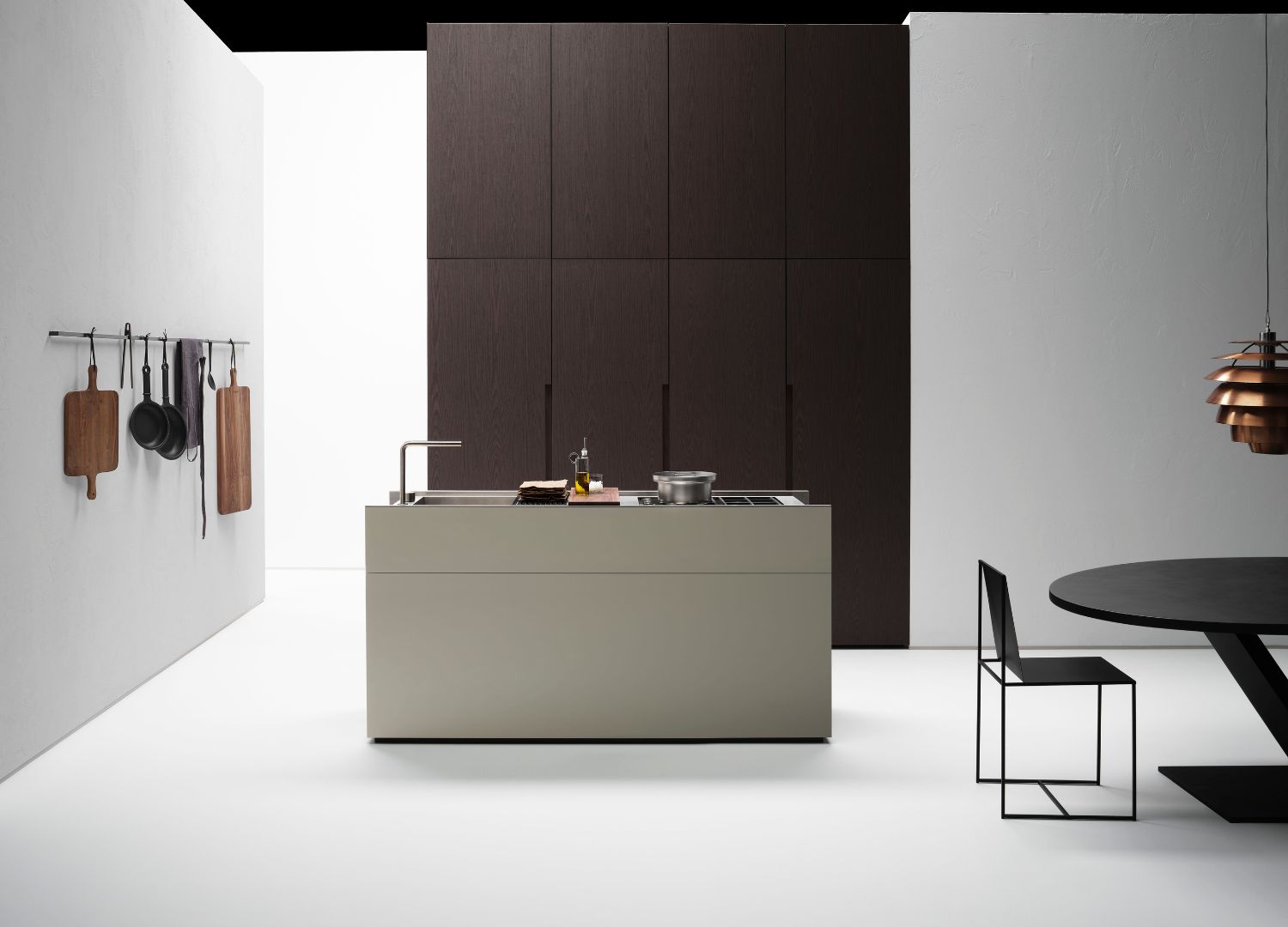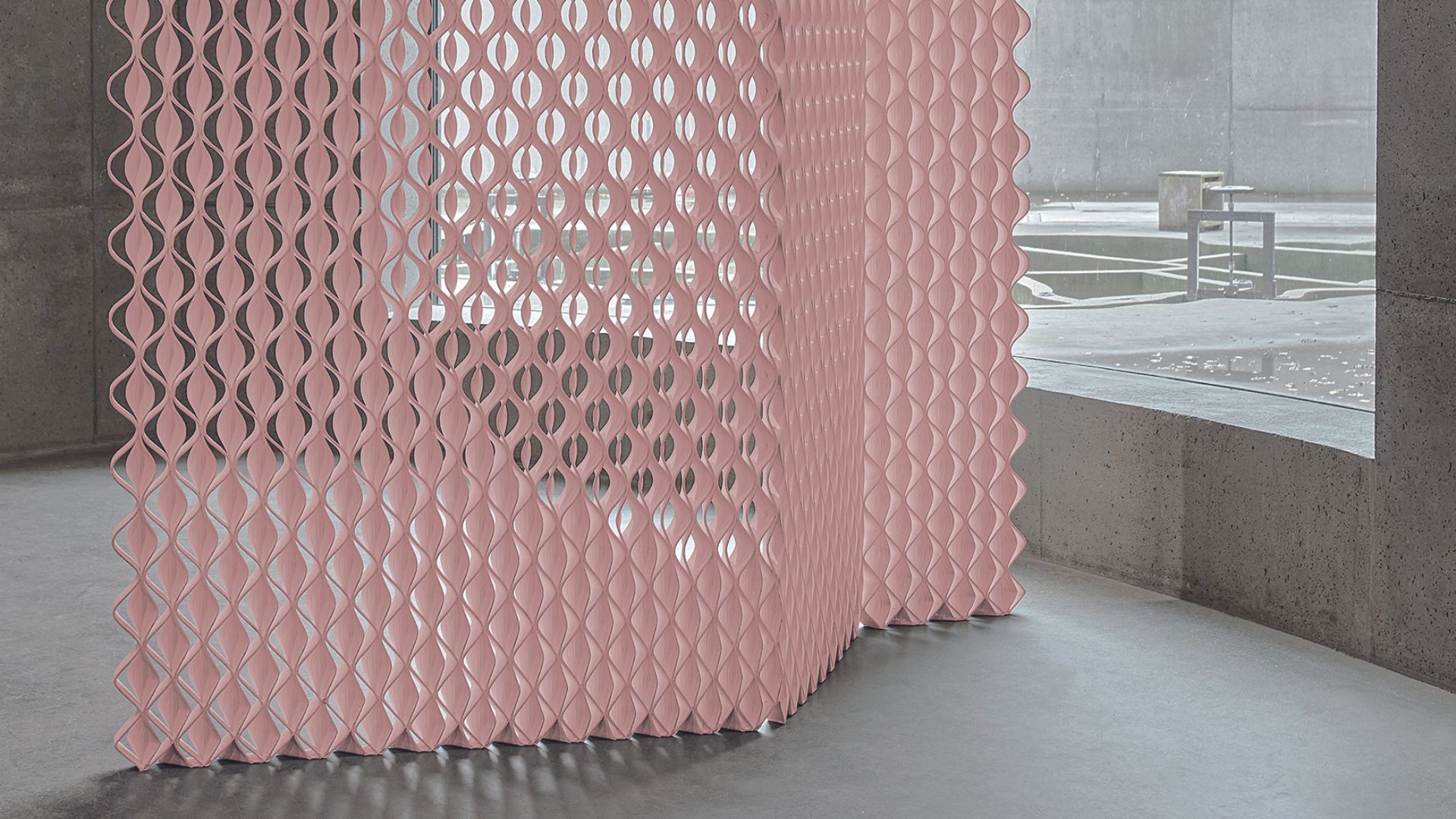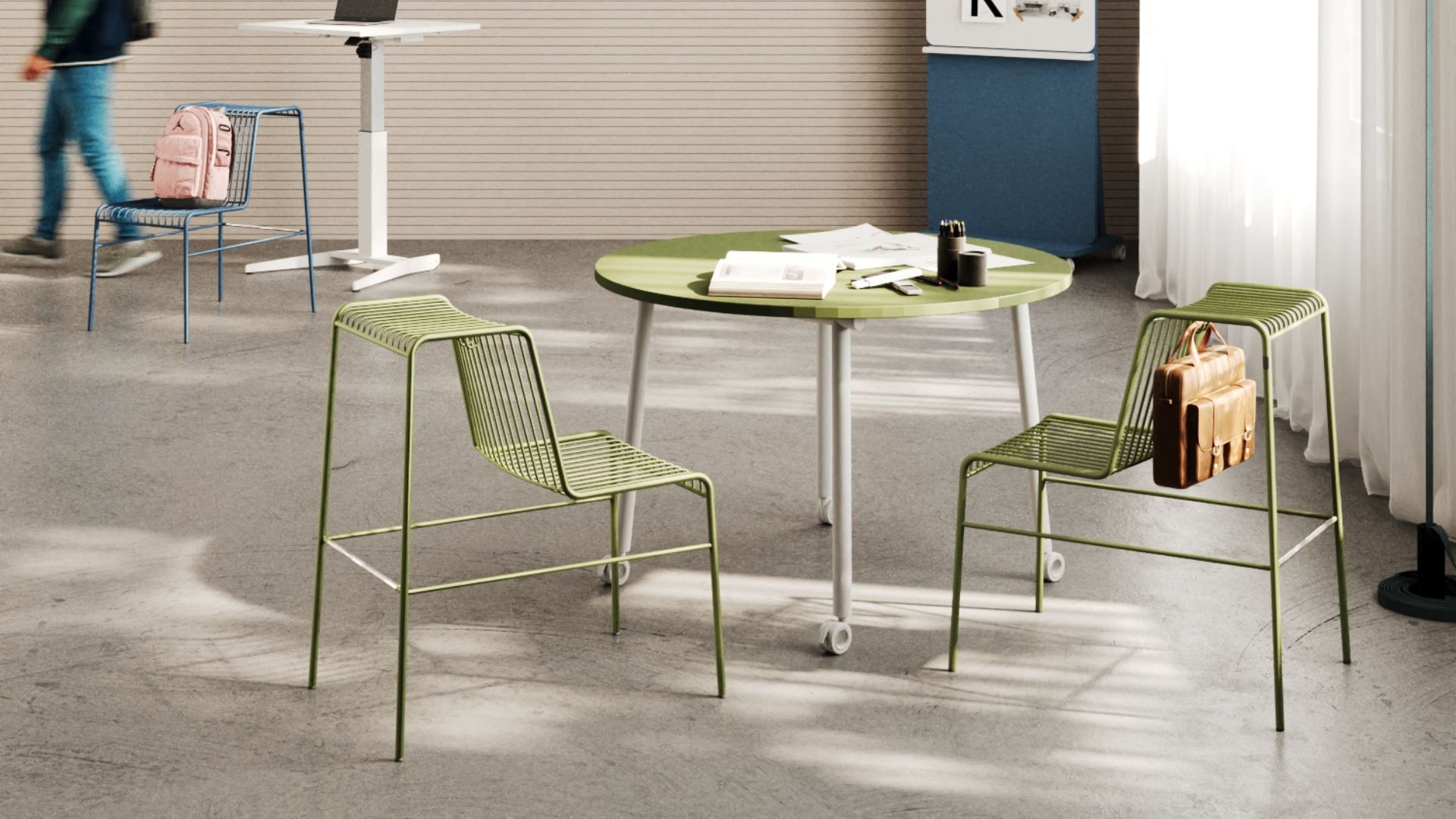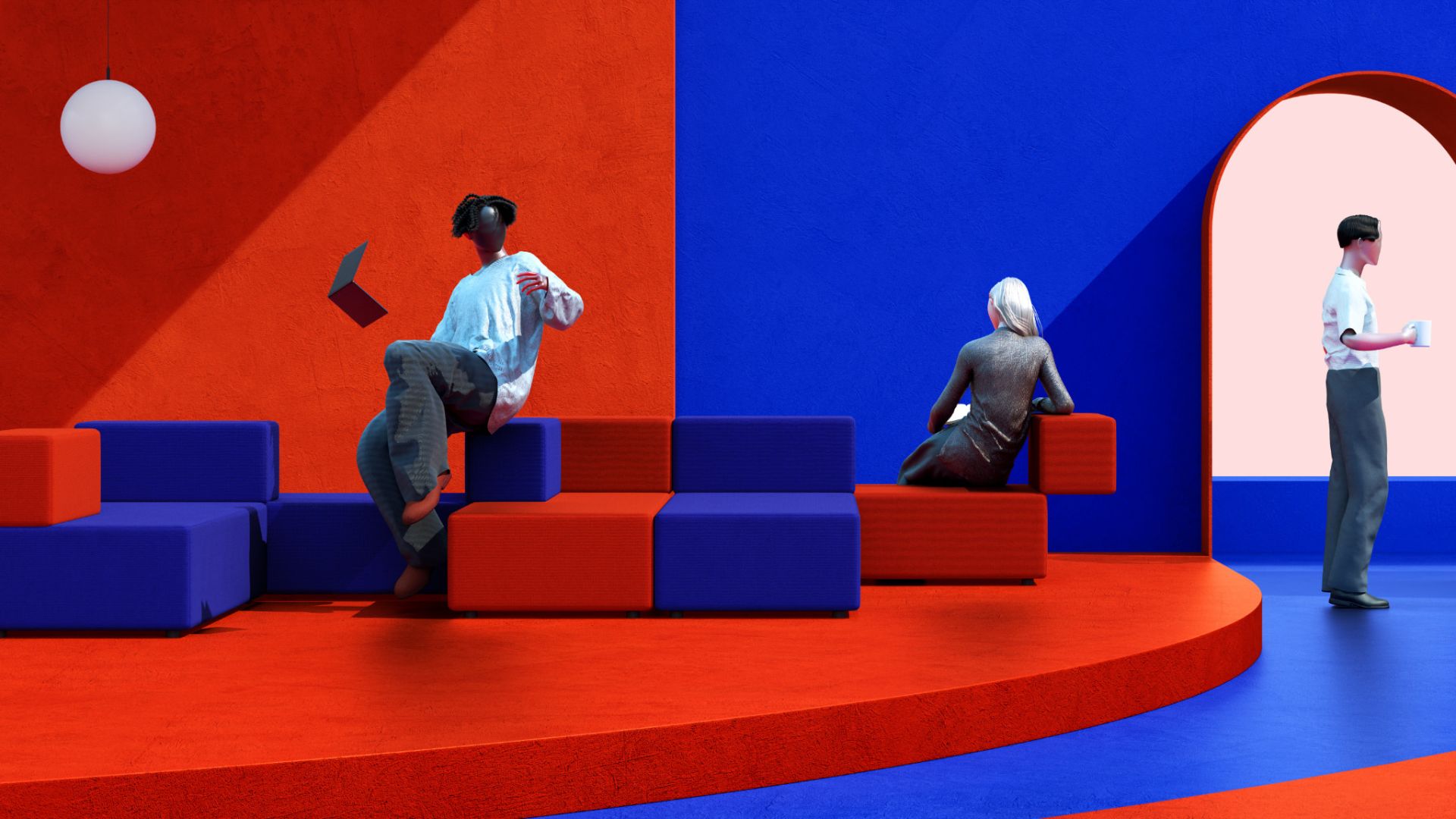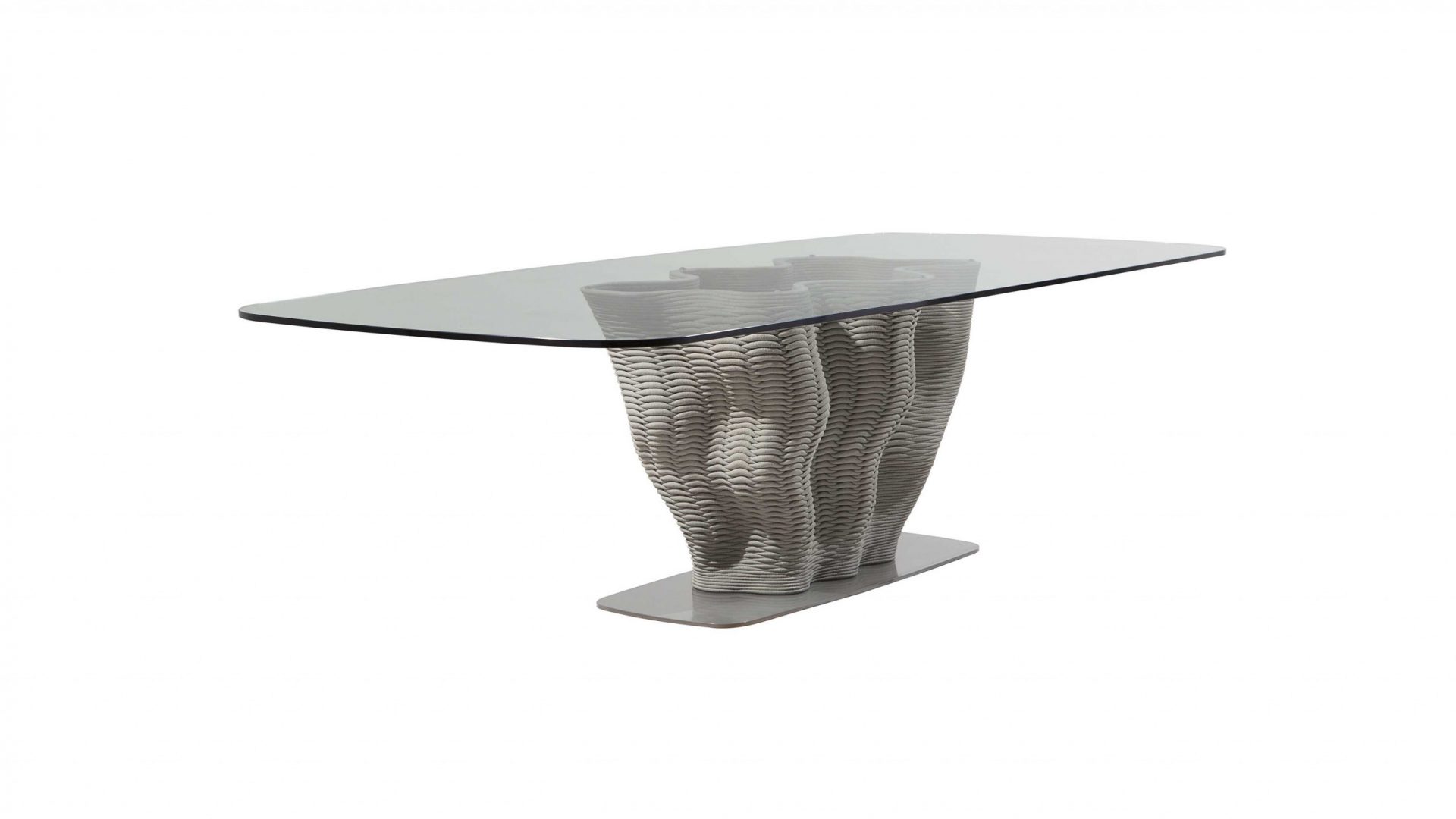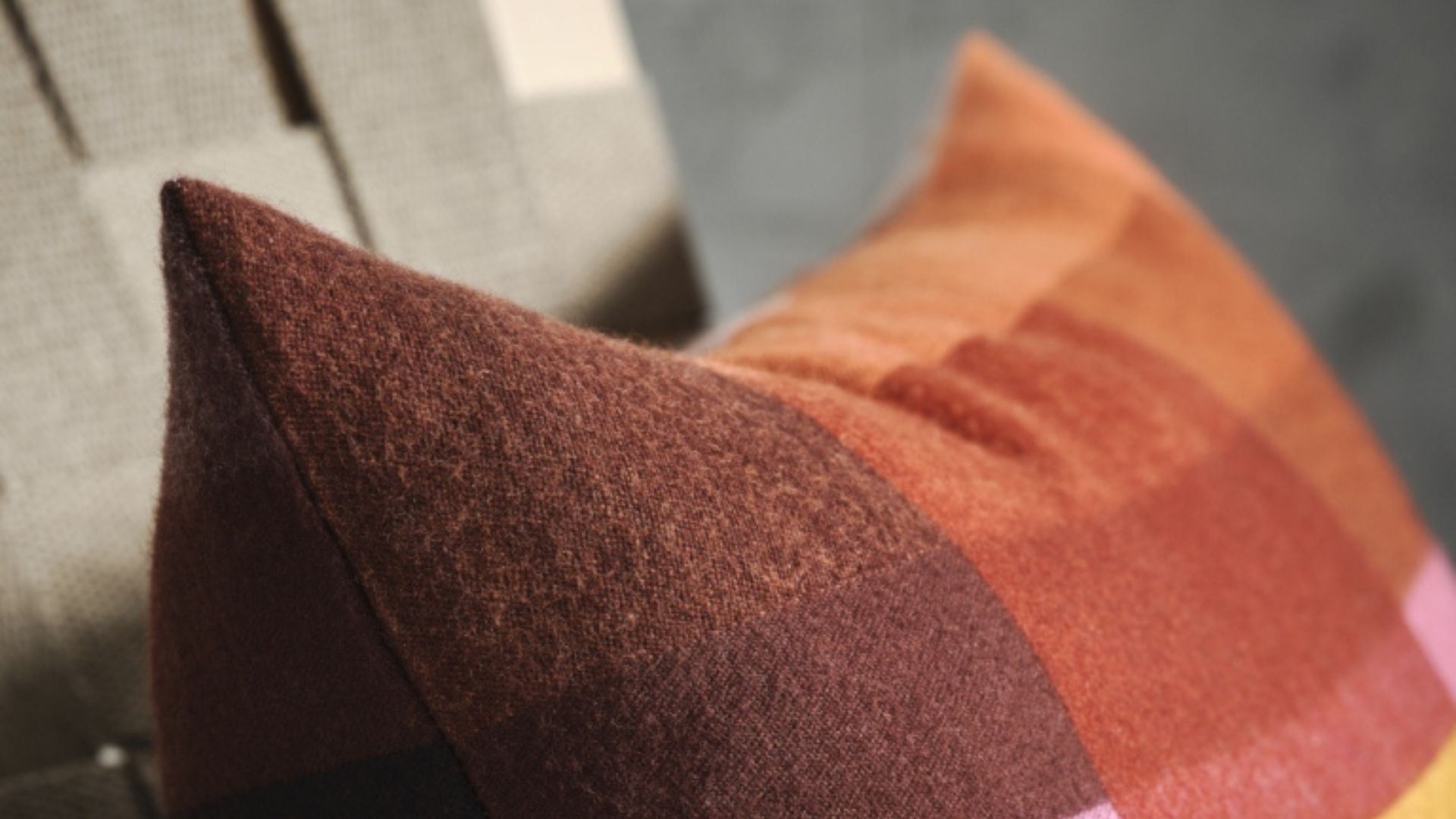Observation, understanding, action: the design ethos of Andrea Federici
Drawing inspiration from Bruno Munari’s mantra, “observe for a long time, understand deeply, act in a moment,” Andrea Federici’s approach to design is anchored in ensuring project consistency and striving for a unified language throughout every component of his work.

In this light-hearted and insightful article, we dive into the crossroads of career choices—venturing solo or stepping into the workforce—with guidance from Andrea Federici, a designer whose eclectic path has led him to the forefront of kitchen and living space innovation.
Andrea, who stumbled into the design world fresh from the Politecnico di Milano, shares his story and sage advice for navigating this pivotal decision. He emphasizes the value of cutting your teeth at established firms, where learning from the best and building a network sets a solid groundwork for future success. With a passion for transforming everyday spaces into areas of beauty and functionality, Andrea’s work spans from the sleek minimalism of contemporary kitchens to the dynamic utility of compact living environments, always with a keen eye on sustainability and user-centric design.

He advocates for a merge of passion, open-minded learning, and the strategic embrace of opportunities that come one’s way. This piece is more than just career advice; it’s a behind-the-scenes look at how Federici navigates the design world, creating spaces that blend form, function, and a touch of the unexpected.
Who is Andrea Federici? How did your venture into the realm of design kick off, and what factors influenced your decision to pursue this career trajectory?
Andrea Federici:
“At heart, I identify as a designer, though I feel this term doesn’t quite encapsulate the entirety of our work nowadays. Beyond just designing objects and their shapes, my role extends further. My journey into design took off after I graduated from the Politecnico di Milano, leading to a collaboration with Scavolini. I entered with a solid background in furniture and modular systems, having worked with numerous brands in bathroom and office furnishings.
However, it was my encounter with Scavolini and the kitchen sector that struck a chord with me, quickly evolving into a deep-seated passion. My foray into kitchen design was somewhat serendipitous, propelled by my interest in the interplay between functionality and aesthetics in home environments. I became enamored with the ability to not just design physical spaces but to shape the experiences that unfold within them.
I never anticipated becoming so engrossed in this field, to the extent that over the years, I’ve sought to broaden and deepen my engagement with the kitchen domain, embarking on partnerships with various supply chain companies. This allowed me to delve into the minutiae, driven by a natural penchant for innovation and technological advancements in furniture design.”

Could you elaborate on any distinctive or characteristic design techniques or methodologies that distinguish your approach from other design studios in the industry?
Andrea Federici:
“My design philosophy is rooted in project coherence and the pursuit of a harmonized language across all elements of a project. I’m inspired by Bruno Munari‘s teaching: “observe for a long time, understand deeply, act in a moment.”
This philosophy is reflected in each of my projects, originating from careful contemplation that transcends mere aesthetics to include functionality, innovation, and sustainability. Over the years, I’ve been developing a distinctive design language that embodies this vision, aiming to create projects that remain true to it. My approach is becoming more introspective, diverging from the market’s mainstream tendencies. I’m often skeptical of designing based on “trends” unless there are compelling reasons and clear objectives behind them.
I prefer not to follow trends because the idea of “following” suggests that someone else has led the way. Instead, I focus on considering trends in a non-essential manner and devote my efforts to developing an independent perspective that leads to original and tailored solutions for my clients.”
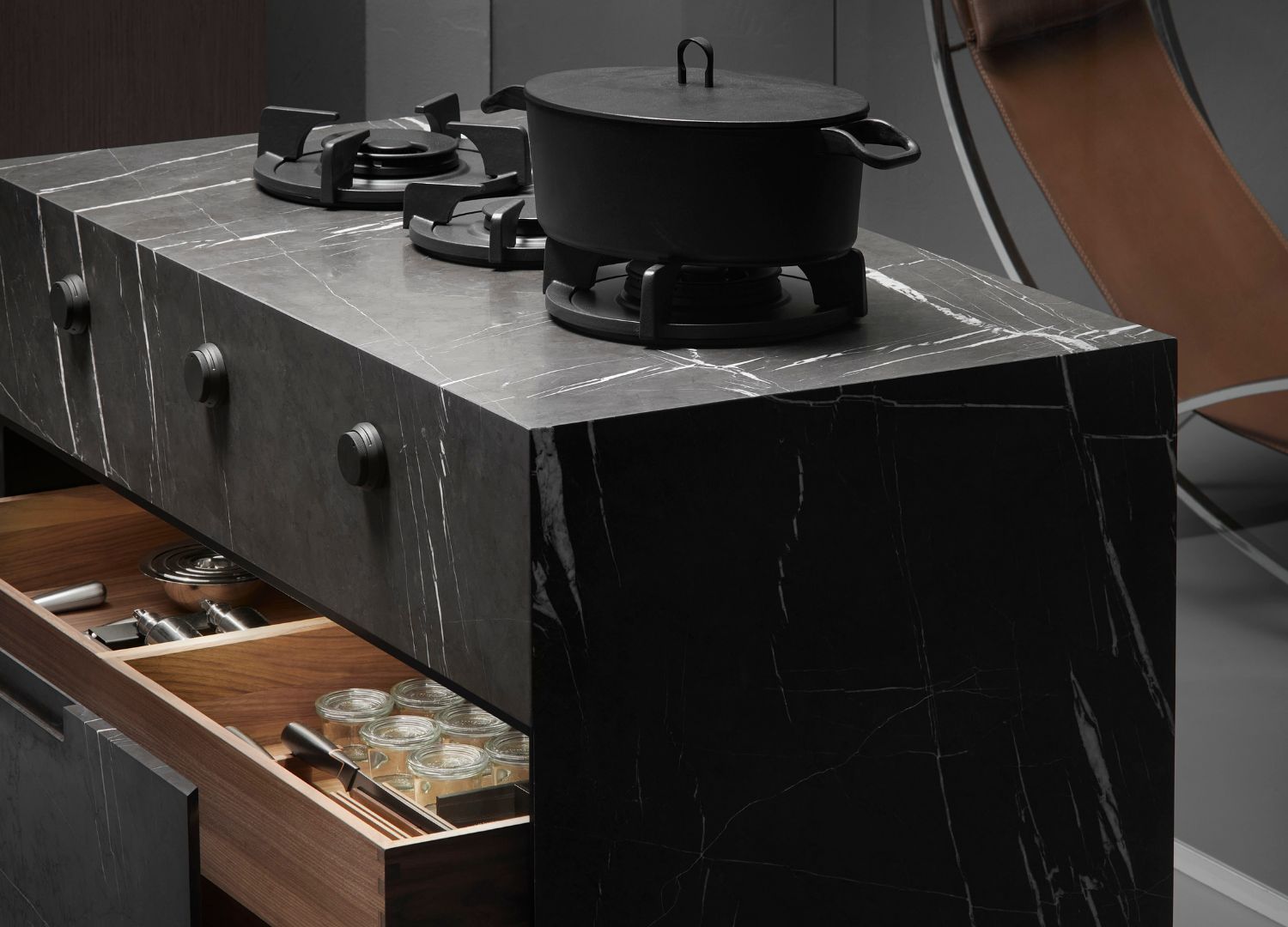
How integral is research and user feedback to your design process? How insights are gathered and integrated into your designs?
Andrea Federici:
“My design approach is rooted in the pursuit of empathetic connections with users. I am a staunch believer in design as an iterative process, where user needs and feedback are paramount. Before embarking on any project, I invest time in understanding the context, needs, and expectations of users.
We employ a combination of qualitative and quantitative techniques to gather insights, including targeted interviews in direct collaboration with my clients, their network of agents, retailers, and end users; we also conduct surveys, co-design workshops, and usability testing. The insights and reflections we collect are then analyzed and infused into our projects through brainstorming sessions, quickly materializing through rapid prototyping to ensure that each solution is as closely inspired by the real needs and desires of users as possible.
This approach enables me to create solutions that not only meet functional needs but also enhance users’ daily interactions with the spaces and objects I design.”

Your projects show a focus on kitchen design. How did you specialize in this area, and what challenges come with developing contemporary kitchens?
Andrea Federici:
“The kitchen transcends its basic function of meal preparation to become the home’s vibrant heart, a center for interaction, sharing, and creativity. My journey into kitchen design is fueled by both a personal passion for culinary arts and a professional trajectory. My enthusiasm for cooking, experimenting with new recipes, and blending my culinary ideas with influences from my travels, particularly in Asia and the Middle East, naturally complements my design career.
This fusion captivates me for its unique ability to integrate technical, aesthetic, and functional elements into one cohesive space, elevating the kitchen from a mere food prep area to an integral part of daily life. Navigating the realm of contemporary kitchen design is filled with ongoing challenges. Striking a balance between cutting-edge innovation and practical functionality is key: contemporary kitchens must cater to day-to-day needs while sporting a sleek, modern look. The imperatives of sustainability and energy efficiency also demand a comprehensive understanding of the latest materials and technologies.
Customization poses yet another hurdle. The diverse requirements, preferences, and lifestyles of individuals necessitate the creation of adaptable and tailored solutions that not only fit into their living environments but also mirror their unique personalities. Such an endeavor requires meticulous attention to the nuances of design and material selection, coupled with a relentless pursuit of fresh inspirations and trends. Engaging in this sector also means keeping pace with a swiftly changing market landscape, where new technological advancements and shifts in home living practices can profoundly alter the traditional kitchen concept.
Establishing an ongoing conversation with suppliers and accessory manufacturers is essential to stay ahead of trends and conceive designs that are both visually appealing and at the forefront of functional innovation.”

If you were to select one of your completed projects that embodies your design philosophy the most, which one would it be, and why?
Andrea Federici:
“Should I need to single out a project, it would be the Small Living Kitchens™ initiative, which brilliantly reflects my design ethos, showcasing my concept of design’s response to changing lifestyle demands through a fusion of technology, aesthetics, and functionality.
The partnership with Falper stands as one of the most exhilarating endeavors of my career, tasked with crafting the brand’s inaugural kitchen line—a venture into uncharted territory with a product concept the market had not seen before. These mini-kitchens, envisioned for upscale small spaces, are both compact and fully equipped, designed for a discerning new breed of consumer. Falper’s meticulous attention to detail, a skill refined through its luxury market engagements, enabled me to apply a level of finesse and precision to my design that brought forth something extraordinary.
The Small Living Kitchens™ concept reimagines kitchen design, presenting furniture that fulfills kitchen duties yet challenges conventional dimensions, shapes, and volumes. Primarily aimed at modern living arrangements in densely populated cities, particularly large international metropolises, these kitchens redefine luxury not as vast space but as intelligently utilized living areas adorned with unconventional furniture that accentuates a lifestyle and preference showcased by a novel consumer demographic.
The innovative nature of the Small Living Kitchens™ concept garnered recognition from 25 international Elle Decor magazines, and in 2023, it secured a coveted Elle Deco International Design Award in the Kitchen category, signifying Falper’s distinguished foray into the realm of premium kitchen design.”

Which designers/architects are you inspired or influenced by? What other fields and inputs outside of the design world provide you inspiration?
Andrea Federici:
“Dieter Rams stands out as a key influencer in shaping my design philosophy. His approach not only lays the groundwork for modern design principles but has also encouraged me to pursue a design ethos centered around functional simplicity and visual elegance. Rams’ knack for crafting intuitive, minimalist products that endure over time aligns closely with my own design ethos, emphasizing that every design element should serve a distinct purpose and enhance user experience.
Inspired by Rams, I am motivated to continuously challenge conventional design norms, striving for innovations that seamlessly blend form with function to meet the contemporary needs of living environments. Observing everyday life and human interactions also serves as a rich wellspring of inspiration for me. Gaining a deep insight into how people occupy their spaces, interact with their surroundings, and perform daily rituals is pivotal to my design process.
Adopting an ethnographic lens, I am able to unearth latent needs, spot emerging trends, and identify opportunities for innovation. This practice of direct observation leads to the development of design solutions that intuitively address the genuine needs of users. In essence, the myriad nuances of daily living, with its rich tapestry of behaviors, preferences, and interactions, fuel my creative endeavors, guiding me towards designing objects that not only delight the eye but genuinely enhance the quality of daily living for people.
This comprehensive approach guarantees that each project is deeply rooted in the fabric of reality, ensuring its relevance and tailor-made quality for those who will engage with it daily.”
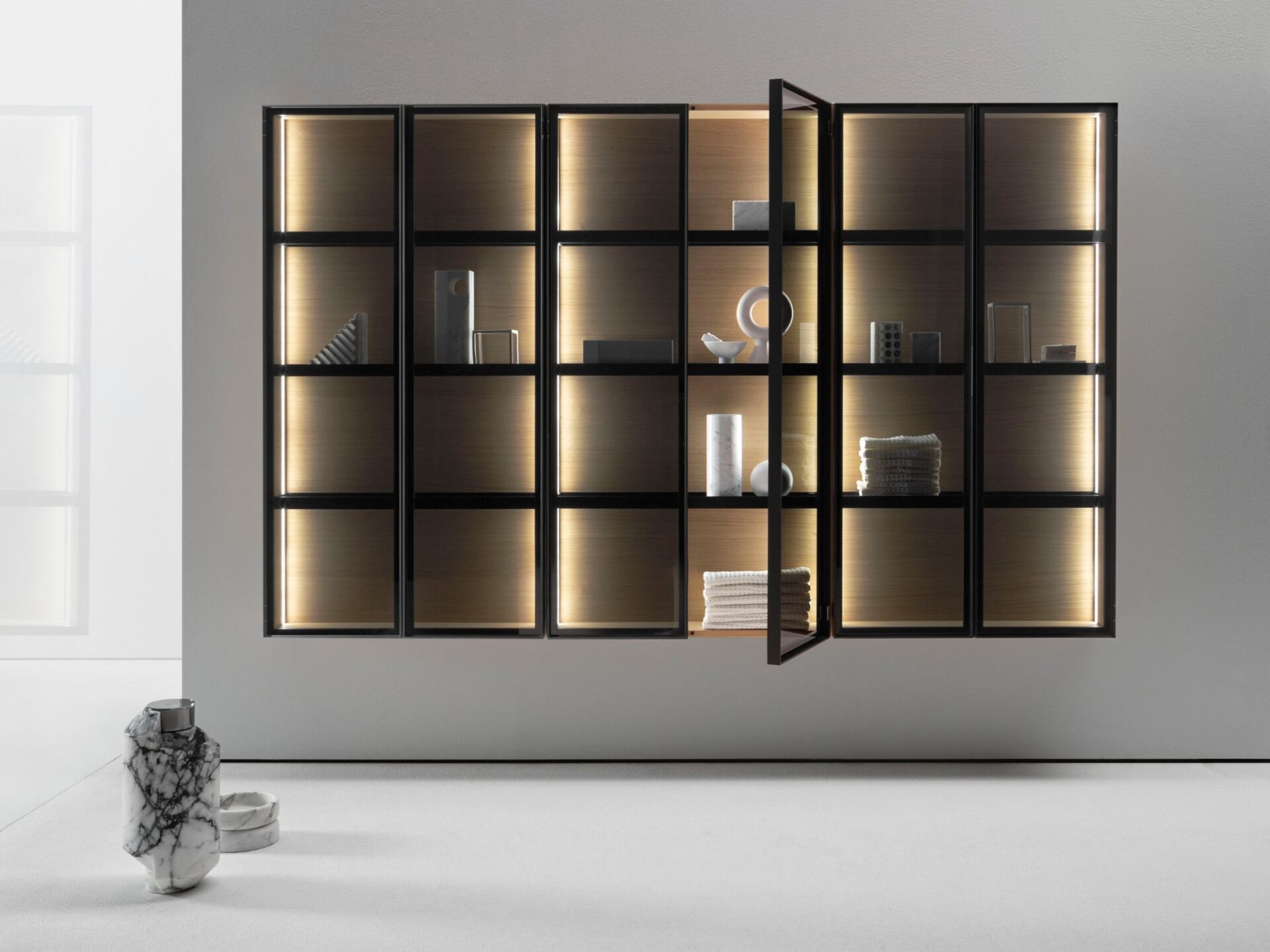
Can you give us a comment to tackle the eternal dilemma of ambitious students: “Should I get a job or start my own firm?”
Andrea Federici:
“Choosing between forging an independent career path or joining the workforce hinges on a mix of factors, including personal goals, risk acceptance, and a readiness to tackle entrepreneurial challenges. My own journey, which unfolded rather spontaneously without a clear plan, has been enlightening. I would recommend this path not only to my younger self but to current students as well. My guidance is to initially seek out experience within established firms or studios.
Such environments offer a golden opportunity to learn from seasoned professionals and gain a comprehensive understanding of the design industry’s intricacies. Working in these settings helps in building a robust foundation of skills and knowledge, alongside cultivating a network of contacts that could prove crucial later on.
It’s vital to passionately and diligently follow your interests, always remaining open to the learning opportunities that present themselves along the way. Embarking on this initial path can equip you with the tools and confidence possibly needed to later start your own venture, which presents the benefits of greater independence and the freedom to express your creative vision unimpeded.
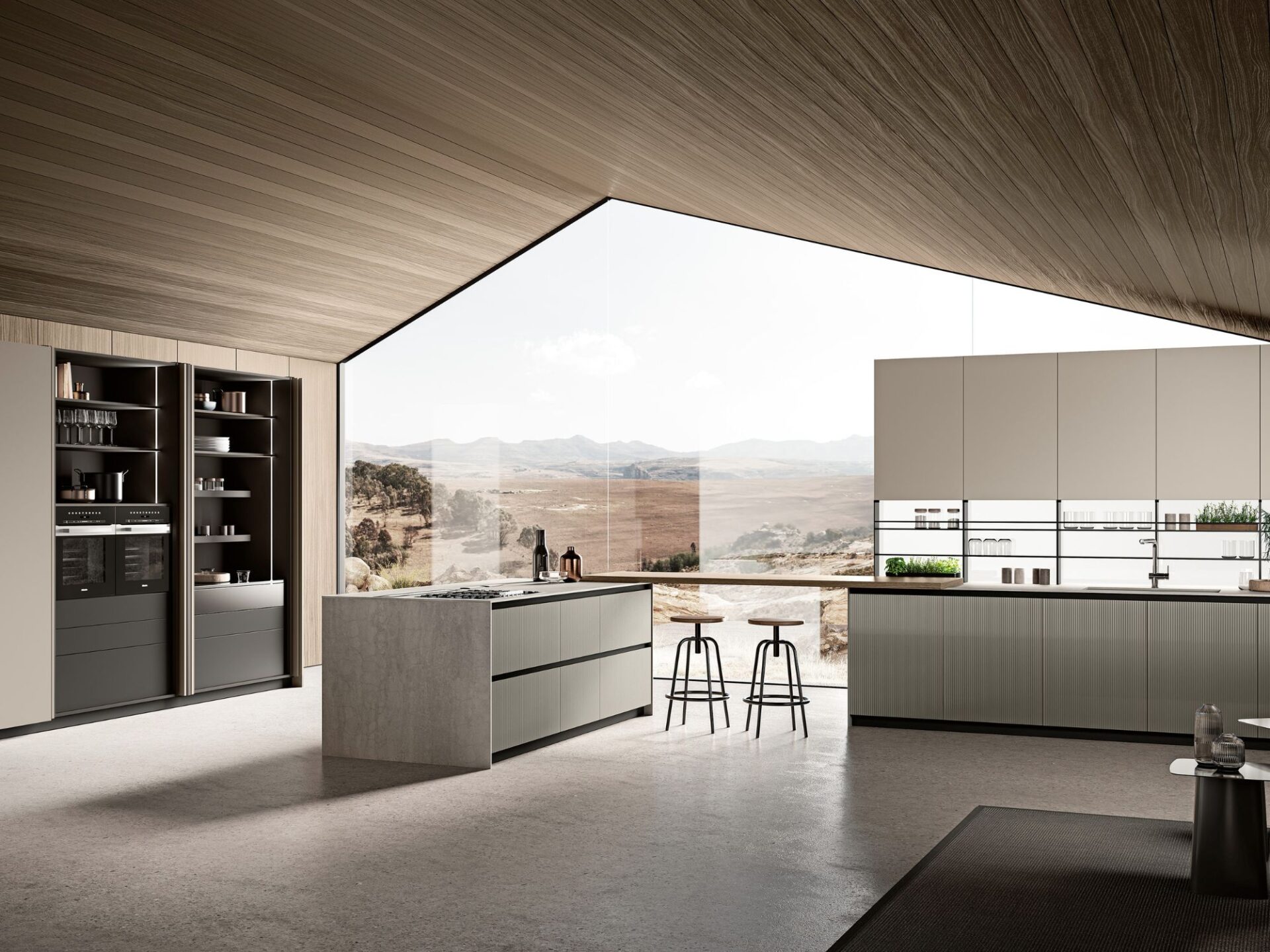
I encourage students to thoughtfully consider their priorities and aspirations, and to never deem their dreams as unreachable. Dream expansively! It’s also key not to shy away from experimenting with diverse career paths, bearing in mind that each experience enriches both your professional and personal development. The essence lies in finding your balance, recognizing that every decision opens up new doors and offers unique opportunities.”


